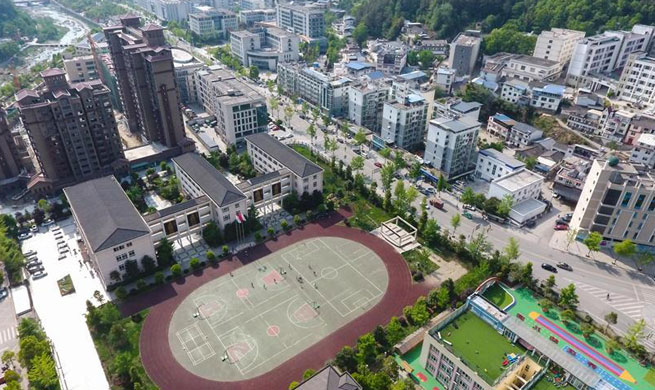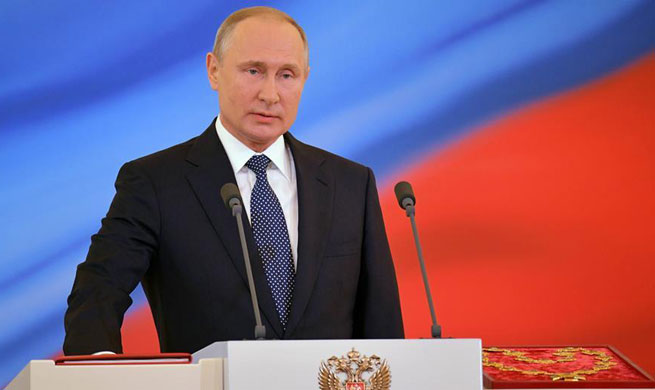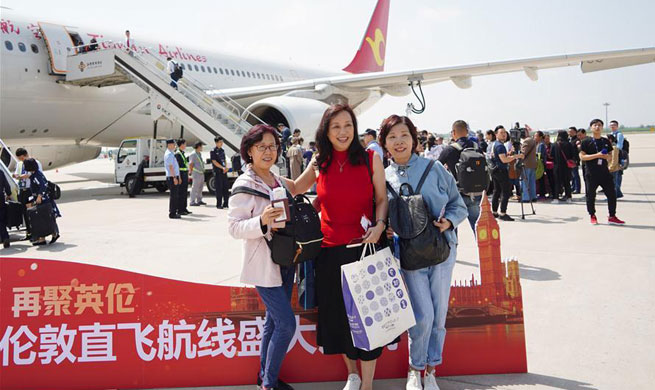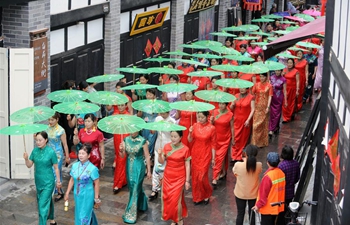by Ye Zaiqi, Wu Xiaoling, Zhu Lei, Li Feihu
SAN FRANCISCO, May 6 (Xinhua) -- U.S.-China thought leaders, former government officials, scholars and business executives have highlighted China and the United States' economic interdependence and the need to build a bridge between the two, instead of entangling in a trade war.
At a conference in Silicon Valley over the weekend themed "Silicon Valley: Bridge Between the United States and China", speakers focused on topics such as the role of Silicon Valley and Chinese-Americans as a bridge between the two countries.
The Committee of 100, a prominent Chinese-American group promoting China-U.S. ties, hosted the annual conference where the participants included Chas Freeman, former U.S. assistant secretary of defense, Jin Liqun, president of the Asian Infrastructure Investment Bank (AIIB), and Gary Locke and Max Baucus, former U.S. ambassadors to China.
TRUMP'S WRONG REMEDY
China-U.S. relations are currently experiencing trade and tariffs differences that may take their toll on both Chinese and U.S. exports.
Freeman, also a senior fellow at Brown University's Watson Institute, said in a keynote speech that the remedies U.S. President Donald Trump's administration is prescribing for U.S. trade problems won't work. "I believe that Washington has misdiagnosed our trade problems, that its remedies for them won't work, and that what it is doing will harm the United States and other countries as much or more than it does China," he said.
"The United States and China are each too globalized and dynamic to contain, too big and influential to ignore, and too successful and entangled with each other to divorce without bankrupting ourselves and all associated with us," he added.
Locke said there are no winners in a trade war. Everybody loses, especially the workers, consumers and companies of both countries. "It's a tough time in the U.S.-China relationship. We must avoid a trade war," he said.
"Sino-U.S. relations are a matter of great importance to all in our country ... a candid discussion of the deterioration of those relations and its implications could hardly be more timely," Freeman said.
U.S.-CHINA "JOINED AT THE HIP"
Max Baucus, who served as the U.S. ambassador to China from 2014 to 2017, said the United States and China are interdependent economically, like conjoined twins. We are joined "together at the hip", he said.
The commercial and economic relationship is really the ballast in the bilateral relationship, he noted.
"Today, roughly 1.5 billion U.S. dollars of goods and services flow between our two countries every single day. China is our largest export market outside North America, with exports to China growing at twice the rate as exports to the rest of the world, and America is China's largest export market exceeding exports to all of the EU countries combined," Locke told the 500-strong audience.
People in both countries are benefiting from this deepening economic integration. More than 900,000 American jobs depend on producing goods and services exported to China. Over 2.6 million jobs in the United States and millions more in China depend on the two-way trade, he said.
MORE PEOPLE-TO-PEOPLE LINKS NEEDED
Baucus stressed that the relationship could be improved by increasing people-to-people exchanges.
If the people of both countries engage with each other more frequently, they can have a better relationship in the long run, he said, adding that it's very important for Americans to get out and see what's going on in the rest of the world.
Both sides have to understand each other and show mutual trust in resolving their differences, he emphasized. The United States and China need to work together and "open up, talk about it and compromise," Baucus said.
FUNDS FOR DEVELOPING COUNTRIES ALONG BELT AND ROAD
The conference also touched upon the China-proposed Belt and Road Initiative and its impact on developing countries.
Jin said the AIIB was created to facilitate the growth of developing countries, largely based on China's experience in the past few decades
The bank was established in 2015 to help developing countries along the Belt and Road routes build their infrastructure and grow their economies.In the first two years since its inception, it has implemented a lending program worth 4.2 billion dollars.
Jin noted that Asia's economic development will offer enormous market opportunities for developed countries, including the United States.
"If Asia develops, and if the rest of Asia develops as China, it means that a huge export market for the U.S. and European countries (will emerge), and direct and indirect benefits will accrue for all the countries in the world," the AIIB president said.

















